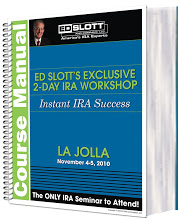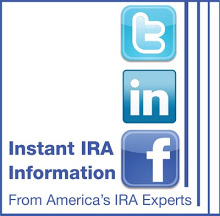This week's Slott Report Mailbag discusses some complex, timely issues involving Roth conversions and Roth IRAs for individuals with disabilities. As always, we stress the importance of working with a competent, educated financial advisor to keep your retirement nest egg safe and secure.
1.
Hello Ed and Company,
I have been disabled since I was a teenager and can't work. I get social security payments from my mother's account. I am taxed on this and on what little I can put in a mutual fund. I am now in my 40s and would like to set up a Roth IRA or some sort of tax free investment account. I have been told that since I do not work and do not have a 401(k) that I can not set up a Roth IRA. Is this true? I am disabled and have very little. I think it would be only fair that I should be able to get the same benefits of a Roth IRA that healthy working people get. What can I do?
Thank you,
Mary
Atlanta, GA
Answer:
Unfortunately the regulations for contributions to IRAs do not provide for individuals with disability income only. The law specifically states your contribution is based on earned income. This does seem unfair in your situation however.
2.
I understand that in 2010 traditional IRA rollovers to a Roth IRA must be reported either as income in 2010 or split 50/50 as income in 2011 and 2012. The choice of taxable year in which the income is reported must be the same for all of a taxpayer's IRA conversions in 2010. I am 63 years old and retired. In 2010 I converted a traditional IRA to a Roth IRA with the intention of splitting the income over 2011 and 2012. In 2010, can I also convert a portion of my 401(k) to a Roth IRA but report the income in 2010, or am I restricted to the same choice I have made for my traditional IRA conversion? Alternatively, can I take a cash distribution from my 401(k), report that income in 2010, even though I opt to spread my traditional IRA distribution over 2011 and 2012? I want to spread income over 3 years, because I am a New York resident, and New York gives a $20,000 exemption per person for pension and IRA distributions, and I don't want to forfeit the New York exemption in 2010.
Thanks!
Answer:
Interesting question. It is clear that each taxpayer must use the same method on IRAs converted to Roth IRAs. Since the tax election will be made on Form 8606 which is filed by the individual, not jointly, your spouse, if you are married, can convert to a Roth IRA in 2010 and use a different method than the one you select. For plans, IRS has not released any guidance yet. There is a possibility that you can make an election for plan conversions separate from the election you make for your IRA conversions. We will have to wait and see.
3.
I have a standard IRA account and a Roth IRA account. The standard IRA has about $10,000. Can I roll that over into my Roth and still make the $6,000 (over 50) contribution for 2011?
Thanks,
Steve
Answer:
You can certainly convert your traditional IRA to either a new Roth IRA or your existing Roth IRA account. A conversion does not eliminate your ability to make either an IRA or a Roth IRA contribution. Your ability to make contributions to a Roth IRA will depend on your level of income in 2010. Phase out limits are as follows:
Married filing jointly
$167,000-$177,000
Single or head of household
$105,000-$120,000
If you file separate, your phase out range is:
$0-$10,000
By IRA Technical Consultant Beverly DeVeny and Jared Trexler
------------------------------------------------------------------------------
Comment, Question, Discussion Topic on your mind? Click on the Blue Comment Link below and leave your thoughts then check back to see what other consumers and advisors think.
*Copyright 2010 Ed Slott and Company, LLC
Thursday, August 19, 2010
Roths, Roths, and Conversions Highlight Mailbag
Subscribe to:
Post Comments (Atom)
















0 comments:
Post a Comment